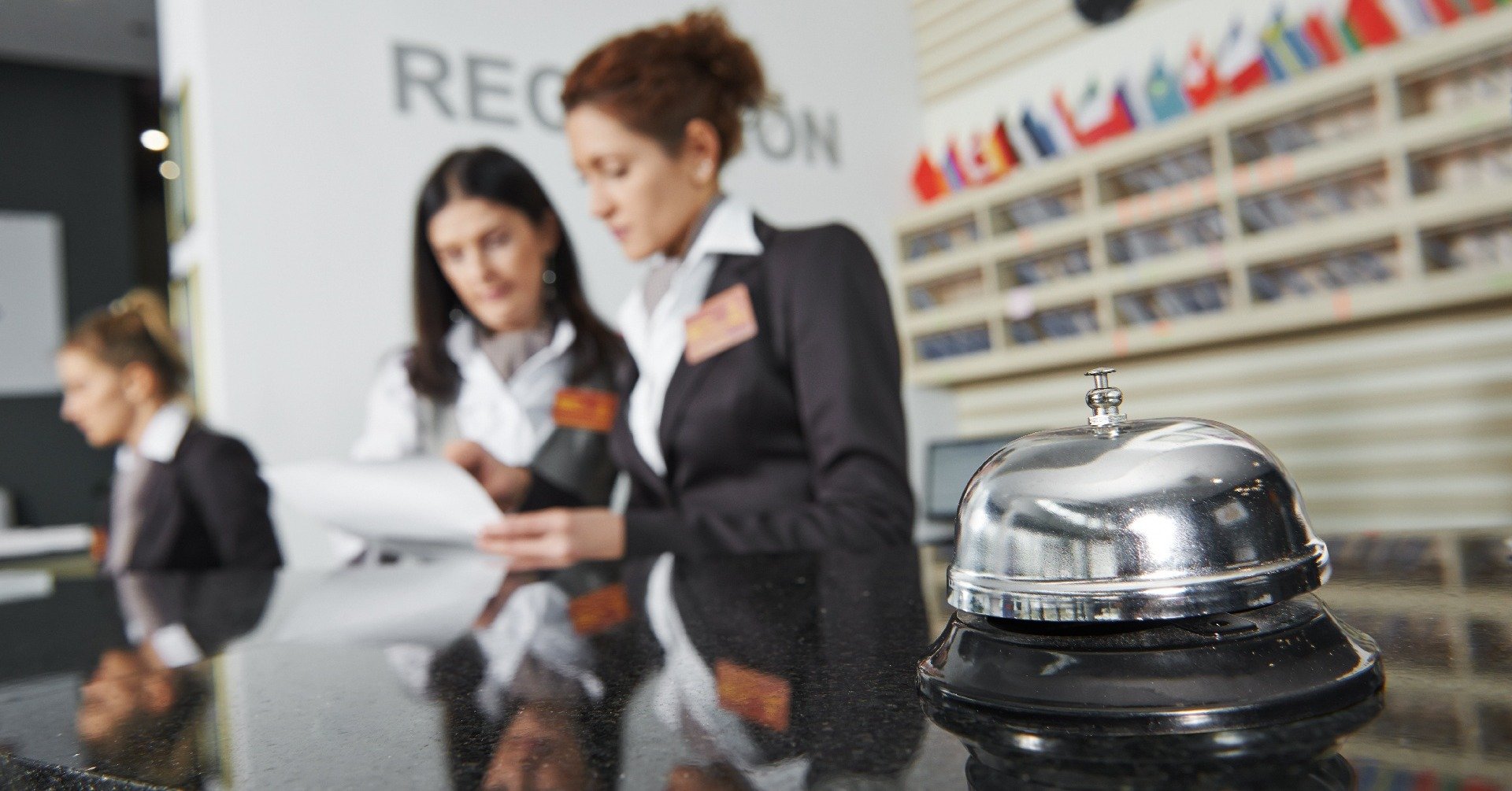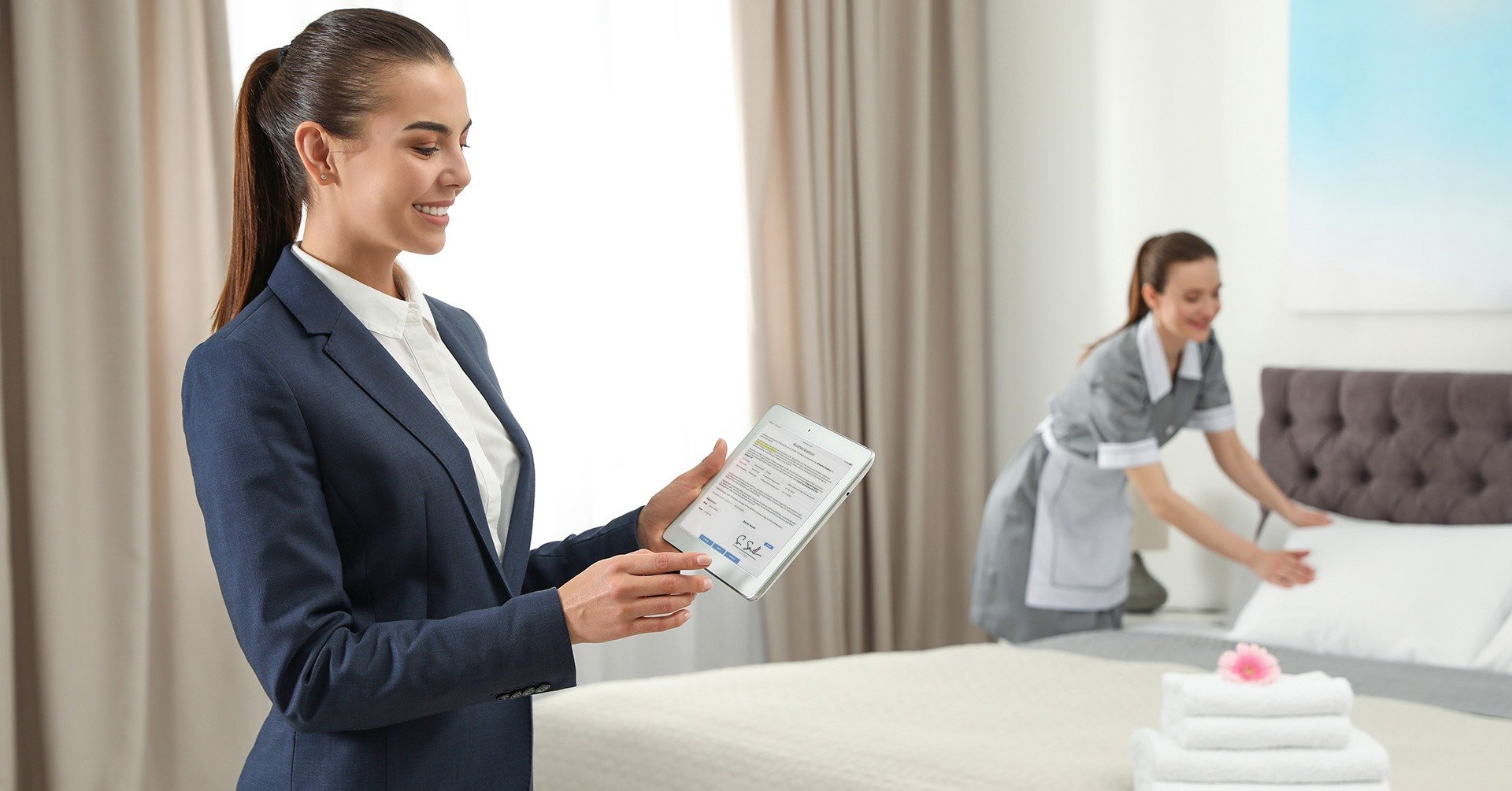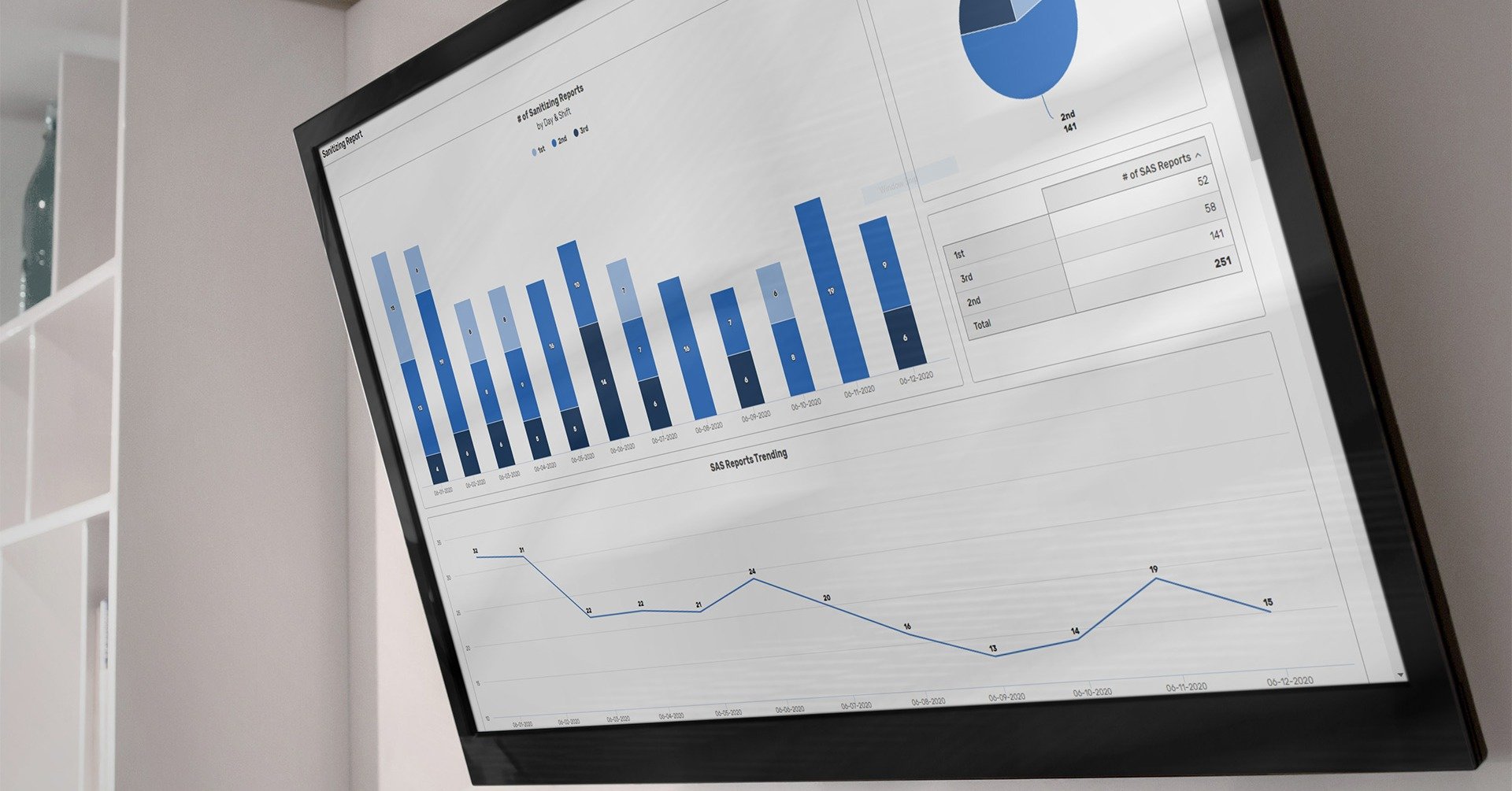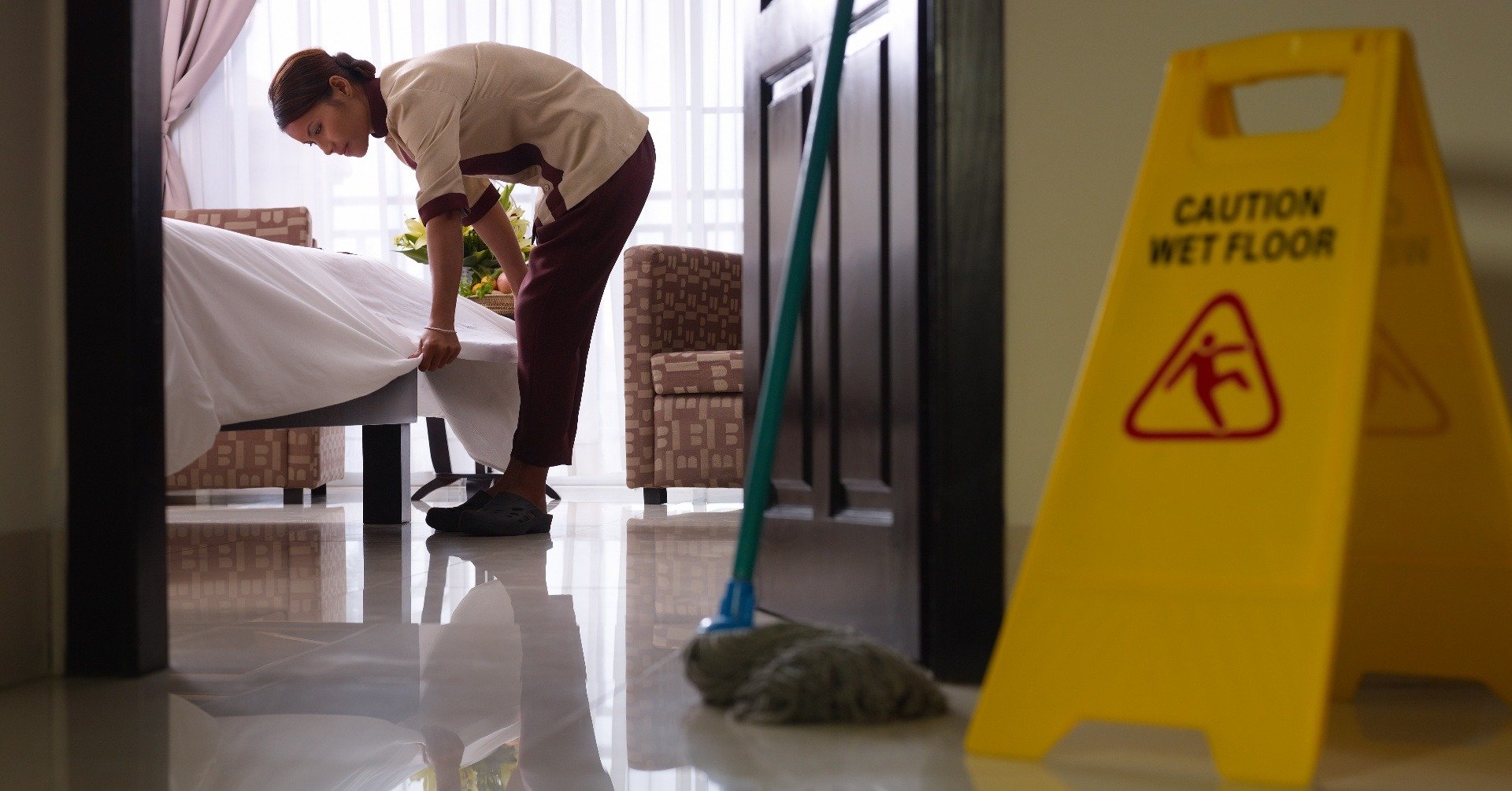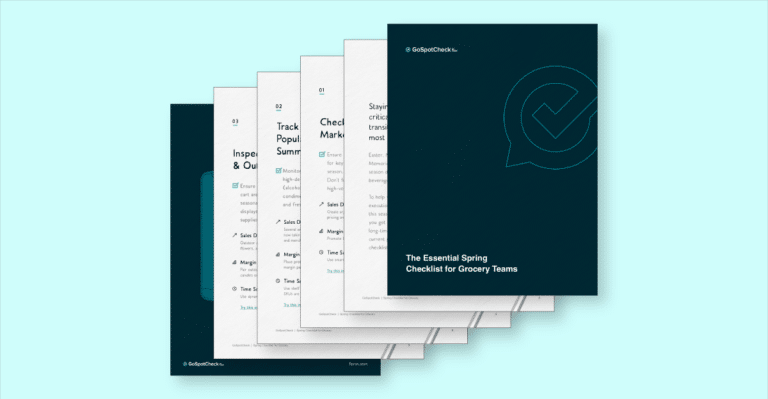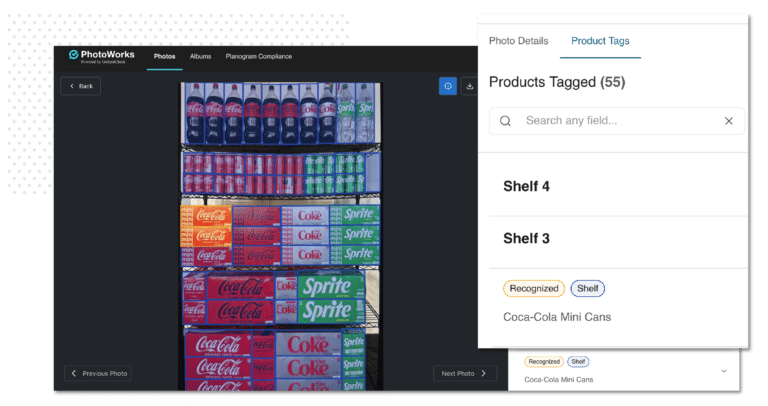Six months into the COVID-19 pandemic, leading hotels have embraced large-scale operational changes to ensure the health and safety of employees and guests. Hotel franchises such as Best Western, Hilton, Marriot, and Hyatt, in addition to industry associations like the American Hotel and Lodging Association (AHLA) have created new standards around sanitation and cleanliness practices.
These new standards supplement existing guidelines, including those from local and state authorities. These improved requirements have begun to form a playbook that will build traveler confidence, bringing much-needed stability to the hotel sector. One of the challenges the hospitality industry now faces is to ensure that these new standards are reliably implemented at all properties on a consistent basis. According to King Jeremiah, a 20-year quality assurance veteran in the hospitality industry, “Even when industry-leading cleanliness practices have been mandated, if the implementation is not effectively executed, the impact will be minimal.”
State-of-the-art data capture and analysis tools are one answer to this challenge. From keeping rooms and lobbies clean, to maintaining compliance within other facilities, these tools provide up-to-the-minute information to confirm that the required standards are consistently met or exceeded. Here are the top five ways advanced reporting tools can help you enhance your hotel’s operations:
#1 – Ensure employees are working from the latest standards
While real-time reporting tools keep you in the loop, they also ensure that employees are clear on what they should be doing and how they should be doing it. Because regulations and pandemic guidelines are constantly in flux, it’s critical to use tools that are nimble, intuitive and self-explanatory. With a mobile data collection solution, on-demand reference info enables your frontline workers to access standards on the go, simplifying training and retraining.
Mobile forms have conditional logic that hides irrelevant questions and points workers toward the right answers, making inspections faster and more accurate. Meanwhile, the ability to update all your forms at once (versus distributing new paper documents and disposing old ones) allows you to stay ahead of shifting guidelines and ensures everyone is working with the latest version of your forms. With the right mobile data collection solution, changes to a form should be simple enough that anyone can do it with a quick training session. You can work independently witout needing a dedicated IT consultant.
#2 – Score reports against brand standards, industry practices, and local regulations
Most hospitality businesses already perform regular checks and inspections, such as quality assurance audits and facility evaluations. They also collect observational data regarding the cleanliness of rooms, shops, restaurants, and other facilities. Now, some hotels have begun to collect symptom data from incoming guests, or they might prompt a brief questionnaire regarding their recent activity. All of these checks can be scored against the various standards at hand, aggregated within one system, and used to plot various analytics and metrics.
At a micro level, inspection scores help you determine which locations or employees need re-training, which locations are less compliant, and what your current level of risk looks like. At the macro level, these scores illuminate trends across geographical regions and big-picture issues over time.
#3 – Support and monitor daily operations with dashboards
Keeping tabs on daily operations can be a tall order when you have multiple inspections, audits, and evaluations underway. By feeding all your collected data into a central analytics platform, you can readily understand what’s going on right now at a glance. Dashboards make it easy to visualize the day’s progress by providing bite-sized, customizable metrics that update in real time.
Once your cleanliness operations are consistently meeting and exceeding regulations, public-facing dashboards can serve as a friendly assurance to customers that your team is on the ball. These curated, selective dashboards provide the opportunity to be transparent about your sanitization practices, and can inspire customers to spread the word about your safe practices.
#4 – Leverage automated workflow to feed into procurement, maintenance, and repair processes
COVID-19 best practices and enhanced cleaning standards call for new supplies and cleaning materials to be readily available, but oftentimes these items are in short stock. This means your organization will need a reliable way to identify needs and quickly reorder essential cleaning items before supplies are depleted. Automated, form-integrated workflows ensure your teams always have what they need on hand by sending alerts when stock is low.
By the same token, they can send alerts to “deep cleaning” teams when a case of COVID-19 is confirmed, or they can send a notification to have a room swept with ultraviolet lights if the need arises. The possibilities are endless with workflows: use them to automate repair protocols, kick off escalation paths, and drive the approval processes before smaller issues turn into big problems.
#5 – Gather actionable insights for long-term planning
All the information you collect in daily reports can feed into analytics tools which provide dashboards and reports. That information includes customer satisfaction surveys, cleanliness inspections, quality assurance audits, and more. All these metrics contribute to a long-term vision of your company’s trajectory that is “greater than the sum of its parts.” As we look ahead to 2021 and wonder what business will be like in the future, analytics tools become all the more critical, and will enable you to conduct deeper analysis when necessary.
These tools allow you to grasp the big picture, cast light on trends and offer insights into your data over time. As you aggregate your reports in one system, it becomes possible to project the pain points and solutions of the future. You’ll know what to expect when guidelines shift, and you’ll be able to adapt to the change management required of your business.
Looking to the future
Hotels must be prepared to enforce stringent standards and show the public they are taking all reasonable precautions to keep them safe for the duration of their stay. While it’s up to each hotel to set and apply new standards, ensuring that the standards are consistently enforced will yield the best results.
The best way to ensure hotel cleanliness during the COVID-19 pandemic is by integrating and automating data collection and analysis efforts. Form.com specializes in helping large organizations mobilize flexible forms that match their existing process perfectly. Learn more about how we can jumpstart your digital transformation by getting in touch with a solutions expert. Or, upload your current forms, and we’ll configure a mobile app sample based on your needs at no cost.


